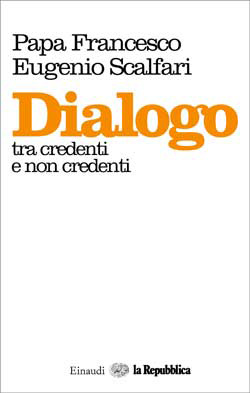Twelfth Sunday in Ordinary Time– Year A
We must give credit to the Jews in general, and specifically to the Old Testament, because sometimes they know how to defend their interests without much pretense, showing us that it is not really required, strictly speaking, to become your enemies’ doormat, to let them crush you. You shouldn’t assume that your adversaries may always be right, hence somehow making the very thought of contradicting them unacceptable.
No, the good guys must learn to be confident, bold and assertive. Starting from a clear judgment: it is not pride to defend God’s reasons, just because we have joined those who support them, albeit unworthily.
Self-confident, fighting the good fight.
In the First Reading we find a classic example of someone who really doesn’t pull any punches.
The Prophet Jeremiah, speaking of his persecutors, makes an interesting profession of faith: they will not be able to prevail, they’ll be overwhelmed by a shame that will be eternal. But immediately afterwards he says something that may surprise most modern ears:
O LORD of hosts, you who test the just,
who probe mind and heart,
let me witness the vengeance you take on them,
for to you I have entrusted my cause.
In other words, while acknowledging that even the righteous are put to test, hence no one has it easy, he invokes God’s vengeance on his enemies (and he can only do so because they are, above all, God’s enemies.)
Of course this isn’t the focus of Jeremiah’s prayer, it’s just a sort of extra perk… Asking God: “please, let me live long enough to witness the defeat of our enemies, to see them humiliated.”
Don’t you feel a little guilty, anticipating the enjoyment of the sight of the finally defeated enemies?
Nevertheless…
These days, do we even dare to speak of God’s vengeance?

A book on the Pope Francis “interviews” with the most famous radical, anti-Catholic Italian journalist: Dialogue between believers and unbelievers. Where somehow the pope seems to assert all sorts of unorthodox thoughts, and his only concern seems to be to show his atheist interlocutor that they agree on almost everything…
This reading verily is at the antipodes of the modern, progressive Church, meant to be open to everything and to everyone; a Church which creates a “Chair of Non-believers” i.e. calls illustrious atheists to teach doubt; who pampers sworn enemies, with a pope who seeks to “open new paths” and to “reform” according to the alleged “imagination of the Holy Spirit”, instead of evangelizing…
Do we even believe there once was holy indignation?! Doubt is a totem; dismantling and closing down have become the norm; avoiding controversial utterances, to avert scandals, a way of life.
So much so that, by developing a habit to ignore hard doctrines in order not to create difficulties, embarrassments and misunderstandings, one ends up forgetting them; and by virtue of their being hard doctrines… spontaneously, in the absence of a proper teaching, the very opposite doctrines will prevail, even in formal Church settings.
If you style yourself an innovator…
remember Luke 9:26:
Whoever is ashamed of me and of my words, the Son of Man will be ashamed of when he comes in his glory and in the glory of the Father and of the holy angels.
Convinced or not?
From this Sunday’s Gospel according to Matthew (!), Jesus again:
Everyone who acknowledges me before others
I will acknowledge before my heavenly Father.
But whoever denies me before others,
I will deny before my heavenly Father.
It really seems that this Sunday’s message is: recognize that indeed there are enemies of God out there; it’s okay to want to see them defeated and humiliated. Enjoy the sight! On the other hand, putting aside God’s Word to try and gain their friendship is super bad!
And there are plenty of sworn enemies of God, there’s no point in pretending that’s not the case.
Perhaps we should dust off the imprecatory psalms instead. Those in which God’s curse is invoked on our enemies (!)…
Those psalms have almost disappeared from the public eye: certain psalms (and certain verses) are not in the liturgy anymore, you can only find them by looking for them in the complete text of the Bible.
Take for example Psalm 139, 21-22:
Do I not hate, LORD, those who hate you?Those who rise against you, do I not loathe?
With fierce hatred I hate them,enemies I count as my own.
Outmoded stuff is brushed aside
Luisella Scrosati cleverly identified the issue in an article in the Italian Catholic Magazine , after having reconstructed the process through which this abusive removal from the liturgy of inconvenient passages was carried out, since they were deemed unsuitable for the sensitivity of young people… In this story we can find the usual villain in the person of Annibale Bugnini, and pope Paul VI in the usual weak position, of one that is pressured incessantly to give in, and eventually caves…
And it is this holy intolerance, this horror of evil and its consequences which, in effect, is no longer perceivable in the Catholic Church. […]
Prayer as a struggle, the repulsion towards sin and the desire for it to be destroyed, the impossibility of reconciling Christ and Beliar, the hunger and thirst for justice and the painful wait for Christ’s return, the infinite purity of God’s love, the radical enmity with the devil and his ilk: all of this has almost disappeared from the public prayer of the Church, forging day after day a “spirituality” that no longer understands the tragedy of sin, no longer fights sin in all its forms, no longer hurls the words of divine judgment against the devil and his allies, but tries to find in prayer and in God a comforting psychological state.
(My translation).
It really seems that today’s First Reading was left in the liturgical books due to an oversight.
Incomplete, yes, but it’s a removal: in the name of skipping difficult passages because “they could be misunderstood” … This excuse is nonsensical, because with such a logic almost everything in the Scriptures would have to be left out, since misunderstandings are found everywhere.
No, evil cannot be forgotten. In the sense, above all, of pretending not to see it.
Yet, once again, here we are. With a prevalent portion of the Church which happens to be progressive and is ashamed of God: He is judged too judgmental, harsh, not inclusive. Slashing off parts of doctrine and Scripture, in the name of this “new sensibility”: they “reform”.
Still not convinced?
Here’s an easy game to play: from this Sunday’s Second Reading, let’s see what was written in that Gospel immediately after the cited part. What comes next? You see, some may try and draw a completely different interpretation from the passage I quoted above, on recognizing or denying Jesus. Maybe I’m reading too much into it? Am I too drastic? Well, let’s just read Jesus’ words (we’re at Matthew 10:34-36):
…But whoever denies me before others, I will deny before my heavenly Father.
Do not think that I have come to bring peace upon the earth. I have come to bring not peace but the sword. For I have come to set a man against his father, a daughter against her mother, and a daughter-in-law against her mother-in-law; and one’s enemies will be those of his household.
Is this clear or not? Here the point is the struggle and division found even within a family. Brought by him, by Jesus Christ! Shall we finally acknowledge reality?
In fact, let’s go back to the aforementioned Chair of Non-believers, which in addition to being a series of conferences, was also made into a book, written by the cardinal that promoted the initiative, the late Carlo Maria Martini. Here is how it was presented in a laudatory preface signed by Pope Francis himself (!):
the principles of the faith, far from becoming a reason for conflict and opposition within civil coexistence, can and must be livable and attractive for others too, through the greatest possible consensus and harmony, to deeply motivate a commitment to justice and solidarity
Forgive me if I chose to emphasize (in red) the most problematic aspects, in direct opposition with the Gospel.
But that’s our current predicament: having to denounce this sharp contrast between Jesus Christ and his representatives, created by the latter in the name of avoiding contrasts (!)…
Note also the abuse of terminology worthy of modern political commentators: civil coexistence, justice, solidarity… the dimension of faith is crushed by this retreat towards the world, through words that are, after all, just empty slogans.
Immediately afterwards, in the linked (Italian) text, the accent falls on the “synodal style”: the umpteenth destructive trick, which has become all the rage these days: synodality is, from the get-go, about valuing the passivity and maneuverability of large numbers of people, who -as such- GUARANTEE no decent results will ever come out (and don’t you dare hope to see them swim against the tide): a large group that “decides” is instrumental in saying yes to the world. Inevitably. Obliterating any originality.
But the process is further perfected, especially where God’s people could show some hesitation, as is surprisingly often the case: leaders for “change” can then pilot the whole process, using the same methods perfected by our secular media enemies, stealthily, in order to create a fait accompli. Slanted opinions from selected witnesses are presented as the norm, others are proactively silenced, so that eventually one can affirm, with clear satisfaction but affecting desolation: “Eh, nowadays people have different, modern views, times have changed, we have to adjust…”

… Two clarifications, otherwise you’ll say I’m a fundamentalist.
1- Don’t assume you’re right!
Our ancestors were generally practical and unsophisticated people. For reasons of necessity and lack of opportunity. Today we can cultivate doubt, but that’s not always a good thing.
They took too many things for granted, such as the indisputability of doctrine.
But said doctrine didn’t spring out of nowhere: its prevalence, its value were being tested by the harsh law of history.
It’s not unexpected to find that the most advanced religious doctrine corresponds to the most advanced civilization, after all!
So… although humans in general (INCLUDING ATHEISTS) tend to take what they believe for granted, it is not unreasonable to believe our faith is sound.
A force for good, and better also from a methodological point of view: this would take us off topic, but let’s just say the crisis of the Western world seems strictly linked to having abandoned the Christian faith, while on the contrary the collapse of Islamic civilization (if you may appreciate an example that is becoming habitual on these pages) occurred after an effort to purify society and get closer to their original doctrine.
And among the benefits of the Gospel that have favored the rise of science there’s this idea of questioning ourselves, with humility; trying not to take something for granted without having first explored the reasons behind it. Islam is again the perfect example of the opposite stance: there’s no room for questioning the teachings that were received; one cannot use reason to discuss Allah, who’s by definition free to do anything, free from rationality.
So here’s the path:
A. in the West a new way of looking at the world was developed: cultivating doubt, inquiring, thus deepening knowledge, going beyond one’s first impressions and expectations.
B.1 The Catholic Christian (more than anyone else) has sought the best answers to existential questions, after a long process; we got to a synthesis, albeit perfectible: it is a result that shows consistency. Nothing is certain, and doubt remains a presence, a possibility, but on the margins.
B.2 The atheist, on the other hand, has decided to cultivate doubt endlessly, treating it as an end rather than a means. Basking in the contemplation of inconsistency. This provides him with an excuse, not believing in anything, to follow his choices, which in this context are therefore irrational, and come from outside forces or from his belly (and other organs).
A dead end.
C.1 On the basis of the solid system of thought thus constituted, the Christian is called to defend the truth, to the best of his abilities, also (of course) showing respect for people. But actually fighting against those who, in an evidently malevolent, prejudicial way, play with words, use subterfuge (or do worse!) to fight the uncomfortable truth of the Gospel, or to trample on justice.
Only in light of the laborious construction of B.1, also thanks to the litmus test of history, we intend to affirm C.1 with vigor.
And in fact we should, avoiding being blocked by clever propaganda moves or crude mistakes that arise from B.2 or from other beliefs. Here we find progressives and modernists: in awe of the enemy.
Affirming it intelligently also means, at times, having to make some clarifications and to teach caution; our target in this case are those who, although on our side, have skipped point B.1 and perhaps also A, and as such have remained at the level of generic, naive religiosity, which can be confidently assertive only because it’s hopelessly primitive. Here we find the majority of traditionalists.
Well-meaning allies who mess with concepts they don’t really know about are counterproductive, and in so many ways…
It goes without saying that through this game of clarifying, coming up with caveats and subtle distinctions, having to continue to explore one’s faith and honestly and critically question it, one makes a lot of enemies…
In fact, content like this very article gets minimal visibility because there’s no satisfaction in reading or sharing it: it doesn’t touch the right nerves.
2- Mercy has nothing to do with it.
Fighting enemies… Gasp! Right-thinking people say: oh my! Here’s a scandalous lack of charity towards brothers and sisters that are distant from us!
Wait wait wait! Intellectual honesty comes before affection. To clarify…
Truth without charity can cause problems, but in the long game Christian truth cannot be understood and appropriated without also learning the meaning of true Christian love. Hence you don’t “risk” anything by betting on truth.
Instead charity without truth is, despite a superficial appearance, a false love, which does not last and does not give life.
Always remember: truth comes first, then love.
We need to consider all likely consequences of our actions, not just apply a simplistic scheme. Who’s the person in front of us, arguing?
If this is about someone who’s confused, or who supports ideas that we find problematic, that is an entirely different case. In such cases showing prudence and respect is absolutely needed, but this doesn’t mean removing from the picture any potentially divisive aspect, as if it were just a danger.
No, here we are talking about enemies, which means: people who behave as such. This certainly isn’t about applying arbitrary labels. We simply have to recognize those who pose as enemies of God and the Church. Those who do it with a bad conscience. And at least the most important and visible cases are standing out: there’s no difficulty in identifying them.
Here, when an enemy is capable of doing damage, there’s a significant following, he/she can perhaps lead 1000 people astray, we must think first of all of those others, even at the risk of losing him/her.
And it’s not just a question of seeking clarity, or of putting the larger effects on the rest of society first. Who said a figurative slap on the face, a humiliation, a berating could not be, even for that specific enemy, more effective (to try and make him/her come to his/her senses) than an insipid possibilism, a servile and flaccid diplomacy?
In recent decades there has been a truly sensational misunderstanding: we must love our enemies, yes! And it’s hard. But loving them does NOT mean agreeing with them!
It’s better to get to their ultimate defeat, a crushing defeat if necessary, which is still something to rejoice about, in the name of a re-establishment of justice, than to let malevolent hypocrites triumph.
Mercy, which is continually misunderstood, is about forgiveness, but that’s for those who -first of all- have repented.
When the “Catholic media” praise well-known adversaries on the occasion of their obituary (pretending to say that after all, uhm, actually, he/she… deep down… was a believer or at least… sort of a good person…), evidently the excuse of not wanting to lead them astray from the Church doesn’t apply, since they’re already dead. So, how are readers and listeners served? Can you really believe someone may find some interest in a faith like that, with such representatives? They’re so afraid to alienate unbelievers even further (using words, one fears, too harsh and judgmental…)! What good could come from a faith that seems indifferent to anything you may do, so that in the end everything’s fine anyway? Even if you spent your entire life stomping on their religion and values, eventually they’ll lionize you and present your life as something exemplary…
No. We need to man up. Causing discontent with our words, but making it clear: we’re definitely not a sort of old wives club, serving tea and whispering gentle words.
Clarification on the clarification…
It’s really appropriate that we remember it’s one thing to pray for justice, which also involves a healthy and visible defeat for God’s enemies; it is another thing to pretend to judge: we are not Jeremiah and not all situations are clear-cut, black-and-white.
I had in mind a couple of names of internal enemies of the Church itself; yet many would even want them both proclaimed as saints, one day.
Maybe I’d be right to ask God to grant me the grace to see them fall from grace, no longer presented as exemplary servants of God. Or maybe not… I better avoid taking this stance; I won’t write those two names down, even if one could be deduced from what was said before. I’m not worth it (and, well… if I ever were to open that book, certainly the number of names would be far larger than 2…)
Yet I believe that Jeremiah’s lesson also consists in this: in the most egregious cases, pointing fingers is definitely the right thing to do, even more so if in the meantime soft tones prevailed all around.
They must not get away with it!
So… how can we not invoke divine justice on these people in the photo below, who are grinning/smiling with pleasure, for the enacting of a law that encourages, favors, decriminalizes abortion (up to birth) in the state of New York?

What do you see in those smiles?
I see something that makes me shiver.
I don’t know who’s worse: if these people, or that Italian radical abortionist, a doctor who once publicly said, with a sinister complacency: “Those babies, I blend them!”
Well, maybe I was wrong by not being particularly pleased with the judicial troubles of former New York governor, Andrew Cuomo, portrayed here while he was signing the law. He had to resign over a string of sexual harassment allegations. It feels like a fitting ending.
Although… in certain circles one hardly ever falls from grace: in the end the proceeding was dropped, as if it were a nothingburger.
But, to clarify: I didn’t mean to specifically pick on these people. I’ve only made a quick search for images of abortion smiles, and there have been quite a few cases in the last year or so, from Ireland to the USA to Argentina. I could have put others on display on my minuscule hall of shame. But these popped up in the search engine.
Consider yourselves cursed even in absentia, you who exude joy over the right to mangle human beings.
And we’re looking again at the core issue: ideas are never just ideas, and the oppressors don’t just disagree with what the Church teaches, they cause victims.










































